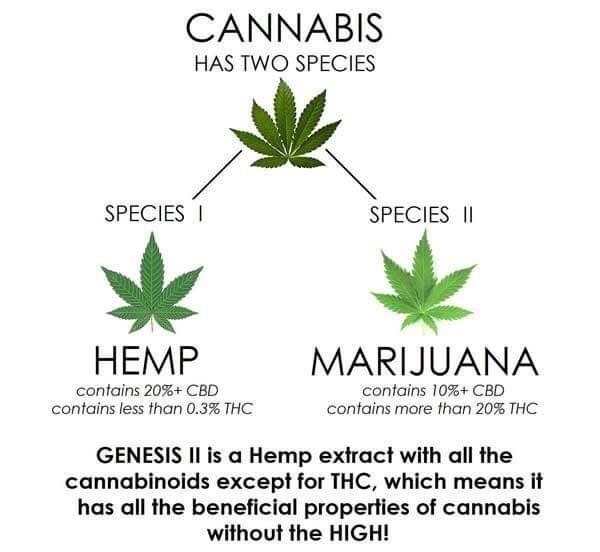Hemp vs Cannabis: What’s the Difference?
What is Cannabis?
Cannabis is the name given to the flowering and leaves areas in the marijuana plant that contain cannabinoids. When consumed, these cannabinoids trigger a variety of physical and mental effects on the human body.
Although cannabis is a reference to the plant, it usually refers to the components of the plant that contain more than .3 percent of tetrahydrocannabinol (THC). This is the cannabinoid responsible for the psychoactive effects. Certain strains are as high as 20 to 30 percent.
What is Hemp?
Hemp, like cannabis, derives from the cannabis plant. However, unlike cannabis, hemp contains less than 0.3 percent THC.
Its development and historical use span over a thousand years. Ancient civilizations likely cultivated hemp as one of their earliest plants. Recognized for its robustness and durability, hemp serves as an ideal material for various products. These include burlap, canvas, rope, paper, and yarn, among others. Additionally, hemp finds application in the production of varnish, paint, and soap.
Beyond its fibers, hemp’s roots and seeds yield oil with significant nutritional value. They are also utilized for medicinal purposes.
According to U.S. law, the distinction between cannabis and hemp is obvious. Cannabis is the term used to describe the leaves, seeds, and flowers of the cannabis plant, whereas hemp refers to cleaned seeds, stems stalks, and roots.
But, research has revealed that the distinction between the two is more intricate.
Composition
The most important characteristic that sets cannabis and hemp apart is their chemical composition. Although both cannabis and hemp have quantities of CBD, they generate different amounts of THC. Cannabis produces that powerful “high” effect, while hemp doesn’t.
The Legality of Hemp vs Cannabis
Due to its psychoactive effects, hemp undergoes different regulation compared to cannabis. The Agricultural Improvement Act of 2013 removed hemp from the list of prohibited substances. This legislation authorized hemp-derived products containing less than 0.3 percent THC.
Cannabis is, however, controlled differently based on the particular state. Some states permit recreational use of cannabis, and some states allow it only for medical reasons.
Usage
Both hemp and cannabis serve as food in various ways.
Individuals commonly use cannabis to induce the sensation of being “high.” They consume it through smoking, vaping, tinctures, edibles, and other methods. Cannabis provides relaxation and therapeutic benefits.
In contrast, farmers cultivate hemp for various purposes, such as industrial materials, food products, and medicinal items. It’s crucial to note that hemp lacks regulation, leading to the potential presence of harmful contaminants in many medicinal hemp products on the market. Consequently, conducting thorough research on manufacturers before purchasing hemp products becomes crucial. Reputable brands maintain transparency and willingly provide lab tests to their customers.Ensure you’re acquiring an approved and lab-tested product by purchasing from a licensed cannabis dispensary.
The Bottom Line
Both cannabis and hemp can provide a variety of benefits due to a wide variety of applications for both medicinal and recreational use. Although they’re often misunderstood it’s essential to know what they are, why they differ, and what they could be considered differently in the eyes of the law.


